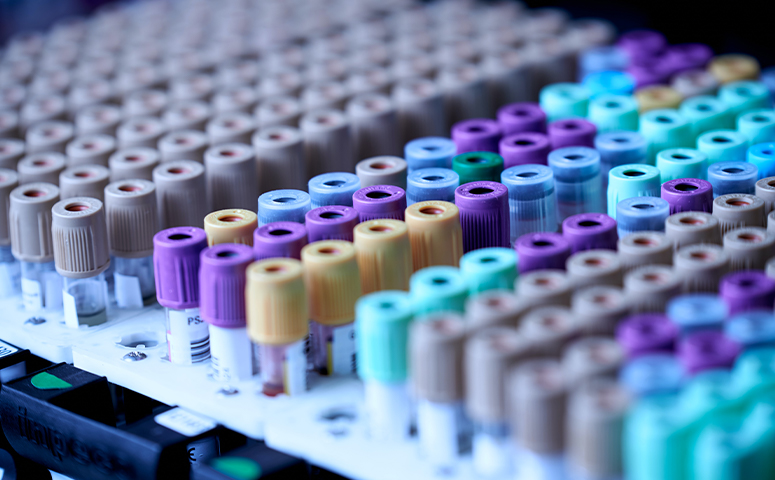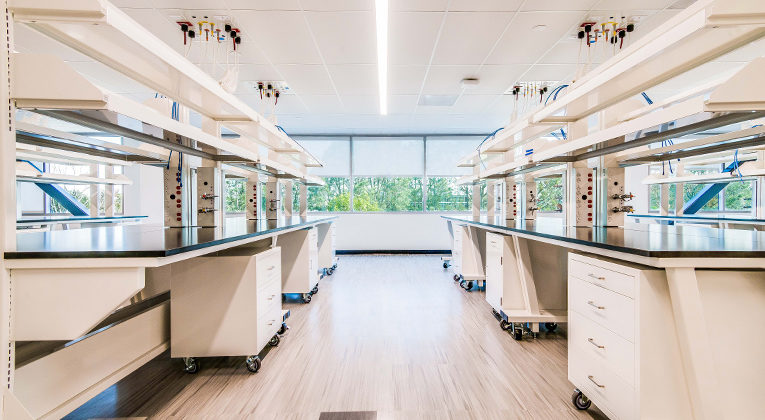By the Hughes Marino Life Science Team
Whether you’ve just secured your first round of funding or are finally ready to move from office space to lab facilities, the search for your first lab space can often start with a lot of questions. Where to look? What to budget? What questions to ask the landlord? Short or long lease? Luckily, all these questions (and more) have relatively straightforward answers, starting with the seven tips below.
TIP #1: Get Started Early
Companies often wait too long to begin looking for lab space, thinking it’s like buying a house—you find one and move in. For lab space, every tenant will have different requirements, so the space will most likely have to be converted or renovated to meet your company’s particular needs. For permitting, design and construction, the typical required timeframe is 10-12 months (depending on size) before you can begin operations in the space. If you don’t leave yourself at least 6-12 months before you need occupancy, you’re limiting your search to only those spaces that won’t need customization, which drastically reduces your options.
TIP #2: Complete a “Needs Assessment” Program
Put together a summary of your office and lab space requirements, including any specific infrastructure needs such as single pass air or ISO requirements, tissue culture rooms, chemistry fume hoods, cold rooms, clean or dry rooms. Calculate on paper the necessary square footage, including building common area factors or amenity space add-ons. Plan for your current needs as well as any future requirements that you can confidently expect over the first two years of the lease term.
TIP #3: Think About Recruiting and Retention
What are your geographical preferences based on your current—and future—team members? Most lab space is in the core life science submarkets. However, there may be more options coming online outside of the traditional areas than you might think.
TIP #4: Determine Your Cash Runway
Consider how long your cash will last. You need to align your real estate strategy and commitment so that your cash will last until your next round of funding catches up.
TIP #5: Get an Estimate on Operating Expenses
Almost all lab leases are structured on a Triple Net (NNN) basis, which means the Base Rent does not include operating expenses. These are comprised of property taxes, landlord’s insurance and Common Area Maintenance (CAM) charges. These can range from $0.90-$1.50 per square foot and should be included in your budget as they are the tenant’s responsibility.
TIP #6: Obtain a Budget Estimate Before Signing a Lease
Tenant Improvement (TI) costs are skyrocketing due to supply chain constraints and the overall demand for lab space. If you don’t get a realistic TI cost estimate before you sign a lease, there can be significant capital expenditure exposure if the TI costs come in higher than the allowance you negotiated with the landlord.
TIP #7: Complete an Equipment List
Think about everything you’ll need, from specialized equipment like a BSC or autoclave to standard office equipment like copy machines. Those kinds of capital expenditures can be daunting on a start-up budget. You might want to consider an incubator option (JLABS, BioLabs, HomeLab) as they will provide shared equipment—but the rent will be more expensive.

Still have questions? One of the easiest and most cost-efficient ways to get answers is to work with a Tenant Representation firm. “Easiest” because you’ll work with an experienced professional who has deep and specialized knowledge of the life science sector. “Cost-efficient” because tenant reps are paid by the building owner—who typically pays a fee whether you hire representation or not—so there is no additional cost to you. Hughes Marino, one of the country’s largest tenant representation firms, only works with tenants, not landlords or owners, so our efforts are laser-focused on getting you the best lab space for your needs under the most advantageous conditions for your current situation.










